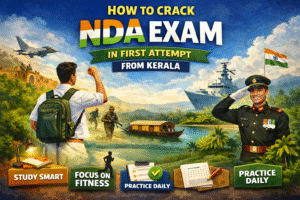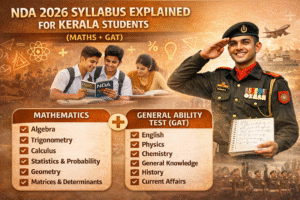The UPSC IAS exam is one of the toughest competitive exams in India, requiring aspirants to follow effective study strategies & exam techniques to succeed. Among various preparation methods, practicing mock tests and solving previous year papers play a crucial role. This article explores the importance of these resources and how they enhance an aspirant’s preparation.
Why Mock Tests are Essential for UPSC IAS Preparation
- Simulating the Real Exam Environment
Mock tests help candidates get accustomed to the real exam scenario, reducing anxiety and improving time management. - Assessing Strengths and Weaknesses
Regular mock tests allow aspirants to analyze their performance and identify strong and weak areas, aiding in refining study strategies & exam techniques. - Enhancing Time Management Skills
The UPSC exam has strict time constraints, and practicing mock tests helps candidates distribute their time effectively across questions. - Building Confidence
Continuous practice with mock tests improves confidence and reduces exam-related stress. - Improving Accuracy and Speed
Practicing MCQs in a timed environment enhances accuracy and decision-making skills, which are crucial for the Prelims stage.
Importance of Mock Tests & Solving Previous Year Papers
- Understanding Exam Pattern and Trends
Previous year papers give insights into question trends, frequently asked topics, and difficulty levels, helping aspirants refine their study strategies & exam techniques. - Identifying Important Topics
Analyzing past papers helps in recognizing topics that are consistently tested, allowing candidates to prioritize their preparation accordingly. - Enhancing Answer Writing Skills
For Mains, solving previous year questions helps aspirants develop structured and concise answers, improving their writing efficiency. - Developing Analytical Thinking
Studying past questions sharpens problem-solving abilities and encourages critical thinking—key skills for the UPSC exam. - Reducing Surprises in the Exam
Familiarity with previous questions reduces unexpected shocks in the actual exam, allowing for better performance.
Best Ways to Utilize Mock Tests & Previous Year Papers
- Integrate Them Into Your Study Plan
Allocate specific days for mock tests and previous year paper analysis within your study strategies & exam techniques. - Analyze Mistakes Thoroughly
After attempting a test, review incorrect answers to understand the reasoning behind them and avoid repeating mistakes. - Track Progress Regularly
Maintain a record of test scores to measure progress and make necessary adjustments to your study approach. - Simulate Exam Conditions
Attempt mock tests under timed conditions to build exam-day stamina and efficiency. - Focus on Conceptual Clarity
Use previous year papers to reinforce fundamental concepts, ensuring a strong knowledge base for all subjects.
FAQs
1. How many mock tests should I attempt before the UPSC IAS exam?
It is advisable to attempt at least 30-50 mock tests before Prelims and write full-length tests for Mains to refine your study strategies & exam techniques.
2. When should I start solving previous year papers?
Start solving previous year papers at least 6 months before the exam to understand patterns and improve your preparation.
3. Are mock tests more important than studying theory?
Both are equally important. While theory builds conceptual knowledge, mock tests enhance application and time management skills.
4. Can solving previous year papers alone help in clearing UPSC?
No, they should be supplemented with in-depth study, mock tests, and current affairs preparation for a comprehensive approach.
5. What are the best sources for mock tests and previous year papers?
Several reputed coaching institutes and online platforms provide high-quality mock tests and previous year question papers for UPSC preparation.
By incorporating study strategies & exam techniques effectively, aspirants can maximize their potential and boost their chances of success in the UPSC IAS exam.







